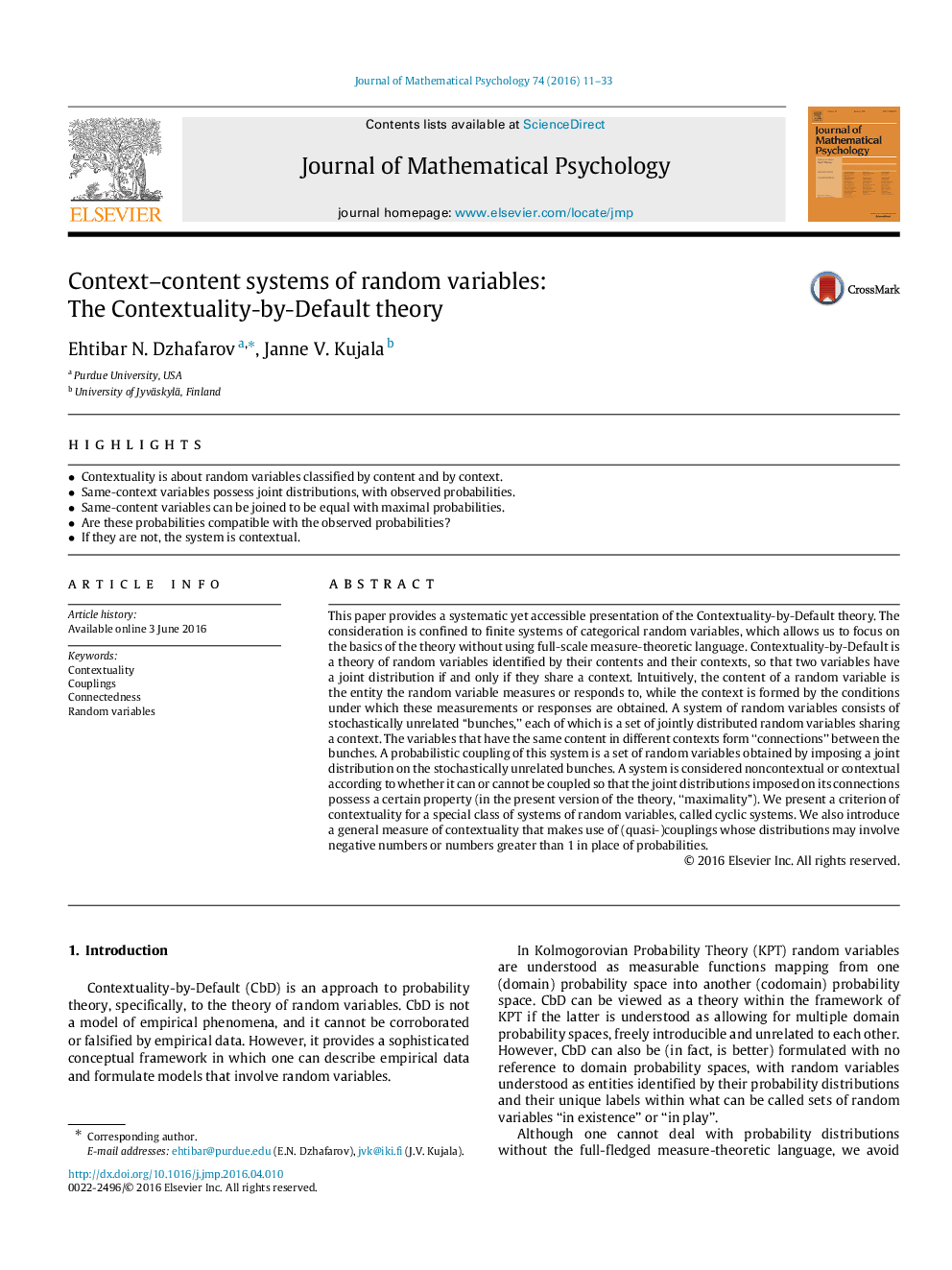| کد مقاله | کد نشریه | سال انتشار | مقاله انگلیسی | نسخه تمام متن |
|---|---|---|---|---|
| 4931850 | 1433264 | 2016 | 23 صفحه PDF | دانلود رایگان |
عنوان انگلیسی مقاله ISI
Context-content systems of random variables: The Contextuality-by-Default theory
ترجمه فارسی عنوان
سیستم های متن محتوا از متغیرهای تصادفی: نظریه کانتیستی به پیش فرض
دانلود مقاله + سفارش ترجمه
دانلود مقاله ISI انگلیسی
رایگان برای ایرانیان
کلمات کلیدی
محتمل بودن، کوپلینگ، همبستگی، متغیرهای تصادفی،
موضوعات مرتبط
مهندسی و علوم پایه
ریاضیات
ریاضیات کاربردی
چکیده انگلیسی
This paper provides a systematic yet accessible presentation of the Contextuality-by-Default theory. The consideration is confined to finite systems of categorical random variables, which allows us to focus on the basics of the theory without using full-scale measure-theoretic language. Contextuality-by-Default is a theory of random variables identified by their contents and their contexts, so that two variables have a joint distribution if and only if they share a context. Intuitively, the content of a random variable is the entity the random variable measures or responds to, while the context is formed by the conditions under which these measurements or responses are obtained. A system of random variables consists of stochastically unrelated “bunches,” each of which is a set of jointly distributed random variables sharing a context. The variables that have the same content in different contexts form “connections” between the bunches. A probabilistic coupling of this system is a set of random variables obtained by imposing a joint distribution on the stochastically unrelated bunches. A system is considered noncontextual or contextual according to whether it can or cannot be coupled so that the joint distributions imposed on its connections possess a certain property (in the present version of the theory, “maximality”). We present a criterion of contextuality for a special class of systems of random variables, called cyclic systems. We also introduce a general measure of contextuality that makes use of (quasi-)couplings whose distributions may involve negative numbers or numbers greater than 1 in place of probabilities.
ناشر
Database: Elsevier - ScienceDirect (ساینس دایرکت)
Journal: Journal of Mathematical Psychology - Volume 74, October 2016, Pages 11-33
Journal: Journal of Mathematical Psychology - Volume 74, October 2016, Pages 11-33
نویسندگان
Ehtibar N. Dzhafarov, Janne V. Kujala,
